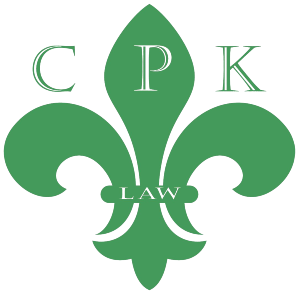By Paul R. Kirst, Esq.
We are often asked if a particular situation gives rise to a workers’ compensation (WC) claim or a personal injury (PI) claim. Sometimes it can be both.
Although there are some rare exceptions, when injured on the job your exclusive remedy as to your employer will be the rights afforded to you through WC. However, if a Third Party (not you and not your employer and referenced as TP for the remainder of the article), wholly unrelated to your employer, causes your injury you may have a separate personal injury claim against that TP. The best example of this is an auto accident while you are in the course and scope of your employment and a TP causes a crash that injures you. In that situation, you are likely entitled to pursue both the WC claim as well as the personal injury claim against the TP. This distinction is not always clear and, in some situations, even if it is a TP who causes your injury, you still may not be allowed to pursue a claim against that TP. If you face this, or a similar, situation call us and let us walk you through your options.
However, if you make such a third-party claim, the WC carrier will assert a lien against your TP/PI claim so that you must reimburse the WC carrier from any proceeds you recover from that TP. This process is known as subrogation and is generally also applicable in similar situations when your health insurance pays for benefits and treatment when caused by a TP. The WC lien will include not only your medical bills, but also such things as rehabilitation, lost wages, permanent partial disability payments, etc. Note: You do not need to come out of pocket to reimburse the WC carrier. Rather, any reimbursement/subrogation is limited to the amount recovered from the TP.
Almost 40 years ago the Nevada Supreme Court in Breen v. Caesars Palace, 715 P.2d 1070 (1986) ruled that it was unfair that the injured employee bear the entire expense of the fees and costs incurred to recover money from a TP (when reimbursing the carrier 100% of the WC lien). The Breen Court developed a formula (shockingly referred to as “The Breen Formula”) wherein the fees and costs incurred by the employee to recover from the TP were split between the employer and the employee. This was generally an equitable and fair way to share the incurred costs and fees.
Unfortunately, in AmTrust North America, Inc. v. Vasquez, 140 Nev. Adv. Op. 61 (Sept. 19, 2024), the Nevada Supreme Court issued a new decision overturning the Breen decision and rejecting the Breen Formula and also negatively impacting the related case of Poremba v. S. Nev. Paving, 133 Nev. 12, 388 P.3d 232 (2017). The AmTrust Court determined that the WC carrier is entitled to 100% reimbursement for all expenses paid on behalf of the injured worker and that the injured worker is now 100% responsible for all fees and costs incurred to recover money from a TP responsible for their injuries.
One of the primary reasons cited in AmTrust was that the Breen decision went beyond the explicit language of the statute. The AmTrust Court wrote “[w]ith this course correction, we return the issue of regulating WC liens to the Legislature,” thus indicating that should the legislature choose to change the statute and adopt a formula similar to the Breen Formula, such would be acceptable.
It is hoped that the 2025 legislature will fix the unfair result caused by the AmTrust decision by writing and adopting new statutory language so we can return to the employer and the employee sharing the costs and fees incurred in pursuing a TP personal injury claim. Keep your eyes open for updates in our future newsletters.


